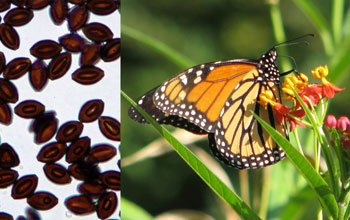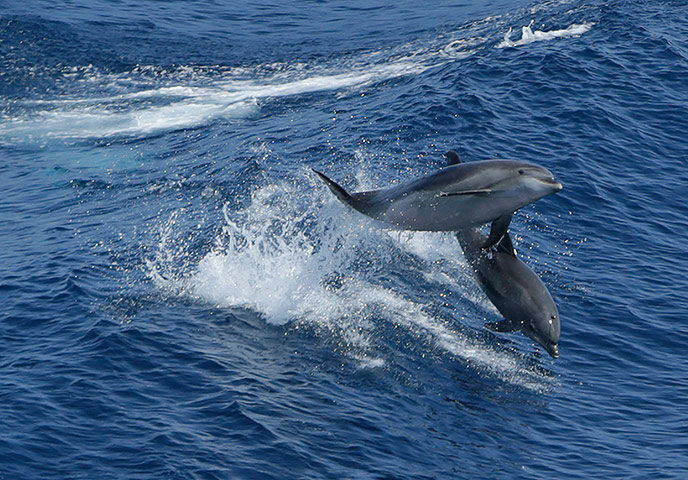TOP STORIES
Infectious diseases and climate change intersect with no simple answers
 |
| Monarch butterflies carry infections in parts of the U.S. where they breed year-round. |
Climate change is already affecting the spread of infectious diseases--and human health and biodiversity worldwide--according to disease ecologists reporting research results in this week's issue of the journal Science.
Modeling disease outcomes from host and parasite responses to climate variables, they say, could help public health officials and environmental managers address the challenges posed by the changing landscape of infectious disease.
"Earth's changing climate and the global spread of infectious diseases are threatening human health, agriculture and wildlife," said Sam Scheiner, National Science Foundation (NSF) program director for the joint NSF-National Institutes of Health Ecology and Evolution of Infectious Diseases Program, which funded the research.
"Solving these problems requires a comprehensive approach that unites scientists from biology, the geosciences and the social sciences."
... "The climate signal, in many cases, is hard to tease apart from other factors like vector control, and vaccine and drug availability." In diseases affecting wildlife and agricultural ecosystems, however, findings show that climate warming is already causing changes.
"In many cases, we're seeing an increase in disease and parasitism," Altizer said. "But the effect of climate change on these disease relationships depends on the physiology of the organisms and on the structure of natural communities."
National Science Foundation
01 Aug 2013
Cited Journal Article
S. Altizer, et al. Climate Change and Infectious Diseases: From Evidence to a Predictive Framework. Science, 2013; 341 (6145): 514 DOI: 10.1126/science.1239401
Edmonton researchers help in fight against BSE, chronic wasting disease
Edmonton-based researchers have helped make major strides in identifying how prion proteins interact with antibodies that could be used to stop them from morphing into deadly forms that causes mad cow and chronic wasting disease.
... a professor [Nat Kav] in the university’s department of agricultural food and nutritional science — partnered with Swiss researchers to seek grants to produce antibodies that could be used in prion research.
The research by Kav, James, and their Swiss colleagues eventually evolved into the paper published in Nature.
Edmonton Journal
31 Jul 2013
A Zabjek
Cited Journal Article
T Sonati et al. The toxicity of antiprion antibodies is mediated by the flexible tail of the prion protein. Nature. 2013; [Epub ahead of print 2013 Jul 31]. doi:10.1038/nature12402
OTHER WILDLIFE HEALTH RELATED NEWS
- Toxic blue-green algae blooms threaten wildlife, local Florida economy in St. Lucie Inlet [Florida, USA]
- Knock-on effects for wildlife as the Arctic loses ice
- Glacier National Park Investigates Nakimu Caves for Bat's at risk and White Nose (Bat) Syndrome [Canada]
- Dead whale excites scientists [Eyre Peninsula, Australia - Map It
 ]
] - DEP begins monitoring dolphin deaths on Jersey Shore
- Bird with West Nile virus found in Brown County [Brown Co., Wisconsin, USA - Map It
 ]
] - Dead birds in Danville test positive for West Nile virus [View recent cases reported in the news in California, USA on Disease News Map
 ]
]
One Health News Corner
- Saving the night: Light pollution a serious concern for human health and wildlife
- Australia faces increased risk of disease from climate change, reports find
- Thailand Oil Spill: Koh Samet Slick Spreads






No comments:
Post a Comment